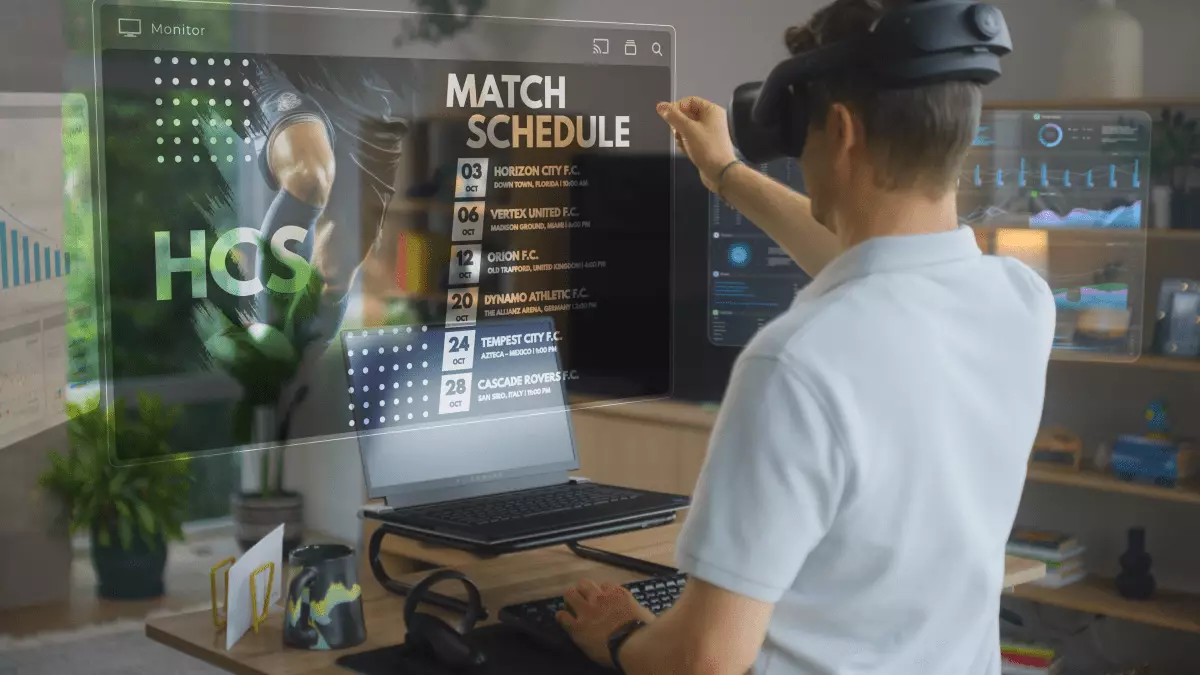In recent years, the world of mixed reality (MR) has witnessed explosive growth, with several heavyweights like Meta, Apple, and Microsoft making bold strides in this domain. Among these, HTC has unveiled its latest offering, the Vive Focus Vision, an ambitious MR headset that aims to blend high-end gaming immersion with practical applications for enterprise use. With a price point of $1,119, it presents a compelling alternative to competitors like Meta’s Quest Pro, particularly considering its diverse functionality.
The Vive Focus Vision emerges at a time when market dynamics are shifting. While Meta’s Quest series has been synonymous with consumer-level VR, HTC has strategically positioned the Vive Focus Vision to capture both casual gamers and enterprise users. One of the standout features of this headset is its ability to provide both VR and augmented reality (AR) experiences, broadening its appeal across different user bases. Much like the popular Magic Leap offerings, HTC’s latest headset recognizes the enterprise sector as a lucrative opportunity that cannot be overlooked.
Shen Ye, HTC’s Global Head of Product, mentions that the device aims to deliver seamless standalone operation while supporting an impeccable tethered experience for PC gamers. With specifications that include built-in eye-tracking, dual 16-megapixel cameras for high-fidelity color passthrough, and a stunning combined 5k resolution, the device clearly targets a discerning audience demanding high-quality visual experiences.
One of the remarkable attributes of the Vive Focus Vision is its comprehensive feature set. It utilizes a dual-lens configuration that boasts HDR performance and a surprisingly wide field of view of 120 degrees, which is critical for immersive experiences. Furthermore, with a refresh rate of up to 120Hz, it ensures that gaming and other visual applications remain fluid and responsive, thereby enhancing user engagement.
Moreover, the headset’s enhanced cooling system is a pivotal addition that addresses the hardware demands of PCVR sessions. The inclusion of an onboard backup battery is another thoughtful feature, designed to maintain continuous operation, particularly when frequent battery swaps are necessary. This attention to detail reveals HTC’s commitment to providing an uninterrupted user experience.
As pre-orders for the Vive Focus Vision opened recently with shipping expected to commence in mid-October, it will be interesting to see how this headset performs against its competition. While the mixed reality market is teeming with options, HTC’s dual focus on gamers and enterprise users could potentially set it apart.
Considering the growing trend towards virtual and augmented experiences in various sectors, the Vive Focus Vision appears poised to make its mark. HTC’s strategic positioning and robust feature set suggest that this headset has the potential to not only compete within the mixed reality landscape but also redefine the market standards for future devices.
The Vive Focus Vision is not just another headset; it’s a testament to HTC’s understanding of a changing technological paradigm where unlimited possibilities lie at the intersection of gaming and enterprise applications. The true test, however, will be its ability to capture the imagination of both realms as it finally reaches consumers.

